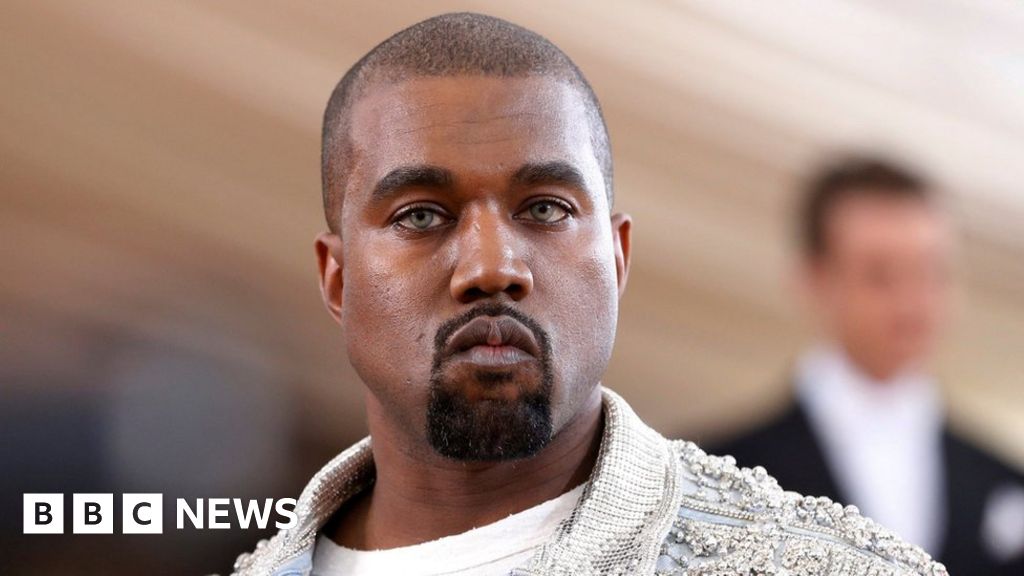In an era where technology is advancing at unprecedented speeds, the idea of cloning public figures like Kanye West has sparked immense curiosity and debate. The concept of a cloned Kanye West challenges us to explore the boundaries of science, ethics, and celebrity culture. As we delve into this intriguing topic, we will uncover the implications and possibilities surrounding the cloning of one of the most influential figures in modern entertainment.
The name Kanye West resonates across industries, from music to fashion and beyond. Known for his bold statements, innovative artistry, and polarizing personality, Kanye has become a cultural icon. The hypothetical scenario of cloning Kanye West opens the door to discussions about identity, creativity, and the future of celebrity influence in a digital age.
This article will explore the concept of cloning Kanye West in-depth, examining the scientific, ethical, and cultural implications of such a phenomenon. Whether you're a fan of Kanye's work or simply intrigued by the possibilities of modern science, this article will provide you with a comprehensive understanding of what it might mean to clone one of the world's most dynamic personalities.
Read also:The Comprehensive Sage Definition Understanding Its Multifaceted Meanings
Table of Contents:
- Biography of Kanye West
- The Science Behind Cloning
- Ethical Considerations of Cloning
- Cultural Impact of a Cloned Kanye West
- Cloning Kanye Through AI
- Celebrity Cloning: The Broader Implications
- The Music Industry's Perspective
- Legal Aspects of Cloning
- Public Reaction to Cloning Kanye West
- Future Directions of Cloning Technology
Biography of Kanye West
Kanye West: Early Life and Career
Kanye Omari West was born on June 8, 1977, in Atlanta, Georgia, and raised in Chicago, Illinois. He is an American rapper, singer, songwriter, record producer, fashion designer, and entrepreneur. Kanye's career began in the late 1990s as a producer for Roc-A-Fella Records, where he worked with artists such as Jay-Z and Talib Kweli. His debut album, "The College Dropout," released in 2004, was a critical and commercial success, establishing him as a major force in the music industry.
Kanye's rise to fame was marked by his unique style, blending hip-hop with classical music influences. Over the years, he has released several critically acclaimed albums, including "Graduation," "My Beautiful Dark Twisted Fantasy," and "Yeezus." Beyond music, Kanye has made a significant impact on fashion, launching his Yeezy brand in collaboration with Adidas.
Data and Biodata
| Full Name | Kanye Omari West |
|---|---|
| Date of Birth | June 8, 1977 |
| Place of Birth | Atlanta, Georgia |
| Profession | Rapper, Singer, Songwriter, Producer, Fashion Designer |
| Notable Works | "The College Dropout," "My Beautiful Dark Twisted Fantasy," "Yeezus" |
The Science Behind Cloning
Understanding Cloning Technology
Cloning refers to the process of creating a genetically identical copy of an organism. While the idea of cloning humans remains controversial, advances in biotechnology have made it possible to clone animals, such as Dolly the sheep in 1996. Cloning involves extracting DNA from a donor cell and inserting it into an enucleated egg cell, which is then stimulated to develop into an embryo.
In the context of "Kanye West cloned," the concept extends beyond biological cloning to include digital replication through artificial intelligence. AI-powered cloning involves creating a virtual representation of a person based on their voice, appearance, and behavior patterns, offering a glimpse into the possibilities of digital immortality.
Ethical Considerations of Cloning
Questions of Identity and Consent
The ethical implications of cloning Kanye West, whether biologically or digitally, are profound. Key questions arise regarding identity, consent, and the rights of the cloned individual. Would a cloned Kanye West retain the same creative genius and personality traits as the original? Furthermore, does Kanye have the right to consent to or reject the cloning process?
Read also:The Ultimate Guide To Awesome Fantasy Novels A Journey Through Enchanting Worlds
Experts in bioethics argue that cloning raises concerns about human dignity and autonomy. The potential for exploitation and misuse of cloning technology must be carefully considered to ensure that it is used responsibly and ethically.
Cultural Impact of a Cloned Kanye West
Shaping the Future of Celebrity Culture
A cloned Kanye West could revolutionize celebrity culture, offering new possibilities for entertainment, marketing, and artistic expression. Fans might have the chance to interact with a digital version of Kanye, attending virtual concerts or collaborating on creative projects. However, this also raises questions about authenticity and the value of originality in art.
The presence of a cloned Kanye West could redefine what it means to be a celebrity in the digital age. As technology continues to evolve, the line between real and virtual celebrities may blur, leading to new opportunities and challenges for the entertainment industry.
Cloning Kanye Through AI
Artificial Intelligence and Digital Cloning
AI-powered cloning represents a fascinating intersection of technology and creativity. By analyzing Kanye's music, interviews, and public appearances, AI systems can generate a digital clone capable of producing new content that mimics his style and voice. This technology has already been used to create virtual versions of deceased musicians, allowing them to "perform" new songs decades after their passing.
While AI cloning offers exciting possibilities, it also poses challenges related to intellectual property and artistic integrity. Ensuring that AI-generated content respects the original artist's vision and legacy is essential to maintaining trust in the creative process.
Celebrity Cloning: The Broader Implications
Exploring the Wider Impacts of Cloning
The hypothetical cloning of Kanye West is part of a larger trend toward the digital replication of celebrities. As more public figures are cloned, the implications for society become increasingly significant. The entertainment industry stands to benefit from the commercial potential of cloned celebrities, but this must be balanced against ethical considerations and public concerns.
Cloning technology could also impact how we perceive fame and celebrity status. In a world where virtual versions of celebrities exist, the boundaries between reality and fiction may become increasingly difficult to distinguish.
The Music Industry's Perspective
Opportunities and Challenges for the Music World
For the music industry, the cloning of Kanye West presents both opportunities and challenges. On one hand, a cloned Kanye could generate new revenue streams through virtual performances, collaborations, and merchandise sales. On the other hand, questions arise about the authenticity of AI-generated music and its impact on the human connection that defines live performances.
Music executives must navigate the complexities of cloning technology, ensuring that it enhances rather than diminishes the artistry and emotional resonance of music. Striking the right balance will be key to maintaining the integrity of the industry.
Legal Aspects of Cloning
Navigating the Legal Landscape
Cloning, whether biological or digital, raises significant legal questions. Intellectual property laws may need to be updated to address the rights of cloned individuals and their creators. Additionally, privacy concerns must be addressed to protect the personal data used in cloning processes.
Legal experts emphasize the importance of establishing clear guidelines and regulations to govern cloning technology. By doing so, society can ensure that cloning is used responsibly and ethically, minimizing the risk of harm or exploitation.
Public Reaction to Cloning Kanye West
Divided Opinions on the Cloning Phenomenon
The public's reaction to the idea of cloning Kanye West is likely to be mixed. Fans may welcome the opportunity to experience new content from their favorite artist, while skeptics may question the ethics and authenticity of such endeavors. Social media platforms will undoubtedly play a significant role in shaping public opinion, providing a forum for discussions and debates on the topic.
As the conversation around cloning continues, it will be crucial to engage with diverse perspectives and foster open dialogue about the implications of this technology.
Future Directions of Cloning Technology
Looking Ahead to the Cloning Revolution
The future of cloning technology holds immense promise and potential challenges. As advancements in biotechnology and artificial intelligence accelerate, the possibilities for cloning will expand, offering new opportunities for innovation and creativity. However, it is essential to approach this technology with caution, ensuring that it is used responsibly and ethically.
By fostering collaboration between scientists, ethicists, and industry leaders, society can harness the power of cloning technology to enhance human life while respecting the rights and dignity of all individuals.
Kanye West Cloned: A Final Thought
In conclusion, the concept of cloning Kanye West challenges us to think deeply about the intersection of science, ethics, and celebrity culture. While the idea of a cloned Kanye West may seem far-fetched, it reflects the rapid advancements in technology and their potential to reshape our world. As we explore the possibilities of cloning, it is essential to remain mindful of the ethical and cultural implications of this powerful tool.
We invite you to share your thoughts and opinions on this topic in the comments below. Are you excited about the potential of cloning technology, or do you have concerns about its impact on society? Your input is valuable in shaping the future of this fascinating field. For more insights into the world of technology and entertainment, explore our other articles on the site.


